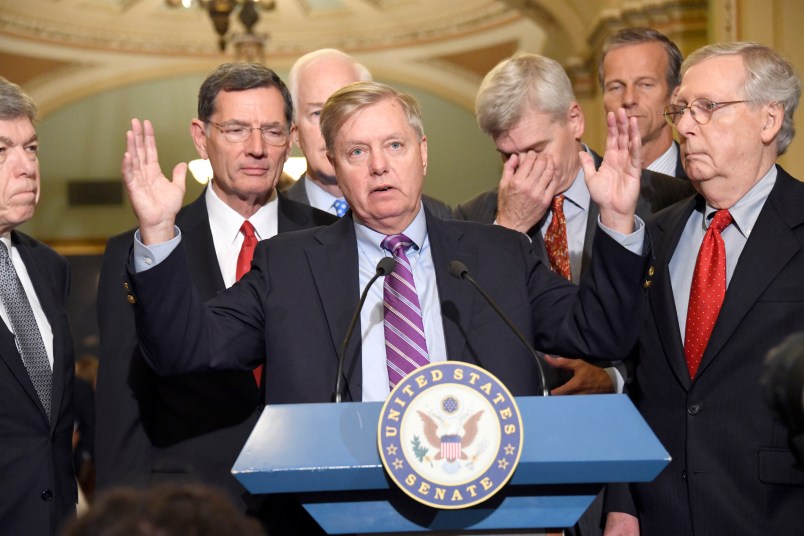A report released Thursday by the Kaiser Family Foundation shows a sharp disparity in how the new Graham-Cassidy Obamacare repeal bill treats states that expanded Medicaid and those that did not.
Overall, the report estimates, states would see $160 billion less in federal health care funding over the next decade under the proposed law, with 35 states and D.C. losing federal dollars. But Medicaid expansion states would bear the heaviest burden by far, losing 11 percent of federal support on average. Republican-controlled states that did not expand Medicaid, however, would get an average increase of 12 percent.
The biggest losers under the bill would be high population, progressive states. California, New York, and Pennsylvania would lose $56 billion, $52 billion and $11 billion dollars respectively.
The biggest winners would be the deep red South: Texas would see $34 billion more, and Georgia, Tennessee, and Mississippi would see $10 billion, $7 billion, and $6 billion bumps respectively over the first decade.

The Kaiser report cautions that all states would face a “cliff” under the bill in 2027, when hundreds of billions of federal dollars could disappear overnight if Congress didn’t renew the block grant funding.
The report comes on the heels of studies by Avalere, Manatt, Brookings, the Center for American Progress and the Commonwealth Fund that have all found that the Graham-Cassidy repeal bill would mean painful cutbacks in federal support for both Medicaid and subsidies for people on the individual market.







It’s the “drinking liberal tears” attitude turned into national healthcare (non)policy. What are these people if not stupid(1) and evil.
(1)Stupid defined as doing things to purposefully hurt people, but in consequence, it hurts oneself even more.
Giddy
Over
Punishment
Proving the GOP is 100% politics and dominance and 0% about policy and the general well being of the country. They are hellbent on making the country more (postbrownback) Kansas - all pain - and eventually more taxes - but with degradation to services and infrastructure that will take years to rebuild. And doing this by choice, not as a result of a catastrophic external event (such as a Katrina).
Feature not bug.